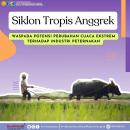What is roundworm infection and what causes it?
Roundworm infection or toxocariasis (TOX-o-kah-RYE-us-sis) involves infestation of people or animals with roundworms, parasites found in the intestinal tract of dogs and cats. What animals get roundworms? Most animal species can get roundworms. Dog roundworms (Toxocara canis) and cat roundworms (Toxocara cati) are two kinds of roundworms that can cause disease in humans.
How can my animal get roundworms?
Dogs and cats of any age can get roundworms but they are most likely to have roundworms when they are very young. Worms are often passed from a mother to her puppies or kittens before birth or shortly after birth through her milk. Roundworms can also spread between animals by ingestion of worm eggs from the feces of an infected animal.
How do roundworms affect my animal?
Most often pets show no signs of infection. Some animals can have vomiting, loss of appetite or weight loss. Heavy infections (large numbers of worms) in young puppies and kittens can cause death. Can I get roundworms? Yes. An estimated 10,000 human cases of Toxocara occur in the U.S. every year. Dogs and cats infected with roundworms contaminate their environment by passing the worm eggs in their feces. The eggs can survive for long periods of time in yards, parks and playgrounds. People can get roundworm infections following incidental ingestion of eggs in feces contaminated soil, sand or plants. Children are more likely to become infected if they play in areas where the ground may be fecally contaminated by dogs and cats. In most cases, roundworm infection causes no symptoms or damage. In some cases, the immature worms (larvae) can migrate through the body causing damage to body tissues. This condition is known as visceral larva migrans. The larvae can damage nerves or even lodge into the eye which can result in permanent nerve or eye damage, even blindness.
Who should I contact, if I suspect roundworms?
In Animals – Contact your veterinarian. In Humans – Contact your physician and discuss you have been in contact with animals with roundworms.
How can I protect my animal from roundworms?
Regular dewormings of your pets can prevent and eliminate roundworm infections in you pet. Talk with your veterinarian. Puppies and kittens should be examined and dewormed by your veterinarian at an early age. Keep the pet’s living area clean and dispose of feces at least once a week. Feces should be either buried or bagged and disposed of in the trash.
How can I protect myself from roundworms?
Keeping your pet healthy and free of roundworms will help protect you and your family. Personal hygiene is essential to minimize infection. Always wash hands after contact with animals or after outdoor activities, such as gardening. This is especially important before handling food or eeating. Do not allow children to play in areas that contain animal feces (e.g., uncovered sandboxes). Keep play areas, lawns and gardens around your home free of animal waste by disposing of pet feces regularly and covering sandboxes when not in use. Teach children that it is dangerous to eat dirt or soil and to wash their hands before eating.










